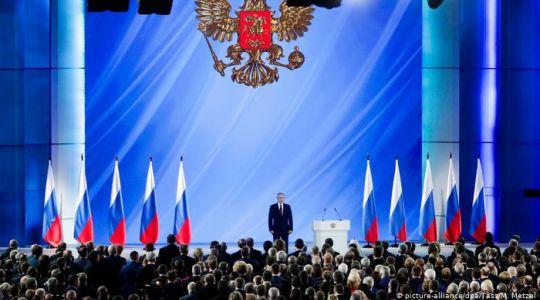On January 20, 2020, the president submitted to the State Duma a draft law on amendments to the Constitution of the Russian Federation “On improving the regulation of certain issues related to the organization of public power”. The highly controversial draft law has already been approved in the first reading by the State Duma. According to Russian federal law, there are two ways in which constitutional amendments can be passed – either by the State Duma directly or by a referendum. However, authorities have proposed an alternative “all-Russian vote”, which is not governed by any existing laws. This begs the question – why are authorities attempting to push these constitutional amendments through by using such a vote when it could simply be approved by the parliament? This entire process, which bypasses already existing provisions for constitutional amendments, therefore raises serious doubts concerning the legality of this constitutional change in Russia.
What are the legal provisions for a referendum?
The amendments proposed by the authorities are related to chapters 3-8 of the constitution, which do not require a referendum and can be introduced solely by parliament. A referendum could be held to amend the mentioned chapters, but it would have to be regulated by strict procedures concerning e.g. the financing of a referendum and campaign regulations. Lawmakers would be obliged to implement the referendum result. The existing legal provisions on the implementation of constitutional amendments do not call for anything like a “national vote”.
Moreover, Article 1 of the Federal Constitutional Act No. 5 of 28 June 2004 on the holding of a referendum in the Russian Federation specifies that a referendum should be conducted on issues of “national importance” which are listed in Article 71 of the constitution and include, among others, the adoption of amendments to the constitution, formation of federal state bodies, and the structure of the judicial system. This definition fully reflects the amendments pushed forward by the authorities.
Read also
Thus, the only legal way to implement changes of chapters 3-8 of the constitution would be either by holding a referendum according to above mentioned Article 1 of the Federal Constitutional Act No. 5 or by a vote of parliament. The authorities’ attempts to amend the constitution by calling an “all-Russian vote” as an alternative to a referendum raise serious concerns among Russian election experts about the legality of the constitutional change.
What are the steps planned by the authorities?
According to Pavel Krasheninnikov, co-chair of the Working Group on the preparation of proposals for amendments to the constitution and chairman of the State Duma Committee on State Construction and Legislation, the draft law will be considered by the State Duma in three readings, and if it is supported by 2/3 of the deputies of the State Duma, 3/4 of the Federation Council, and 2/3 of federal subjects of Russia. Subsequently, the law should be signed by the president, who will then initiate an “all-Russian vote”, of which procedures are apparently still in preparation.
What are the issues of the proposed steps?
The procedure of the president calling an “all-Russian vote” is, however, questioned by election experts. The Federal Constitutional Act No. 5 strictly limits the number of entities permitted to calling a referendum. In accordance with paragraph 1 of Article 14 of the Act, two million Russian citizens or the Constitutional Assembly can initiate a referendum. Thus, neither the president, nor any other state body of the Russian Federation has the right to initiate such a nationwide vote.
Moreover, in case of a referendum, Russian legislation strictly prohibits any campaigning by government bodies at both federal and municipal levels. However, the proposed amendments are being initiated by the president and actively supported by the State Duma, which clearly contradicts the existing legislative requirements.
According to Krasheninnikovs, the procedures of implementation of the amendments should be part of the law on amendments itself which is also questioned by the election experts.
European Platform for Democratic Elections























































